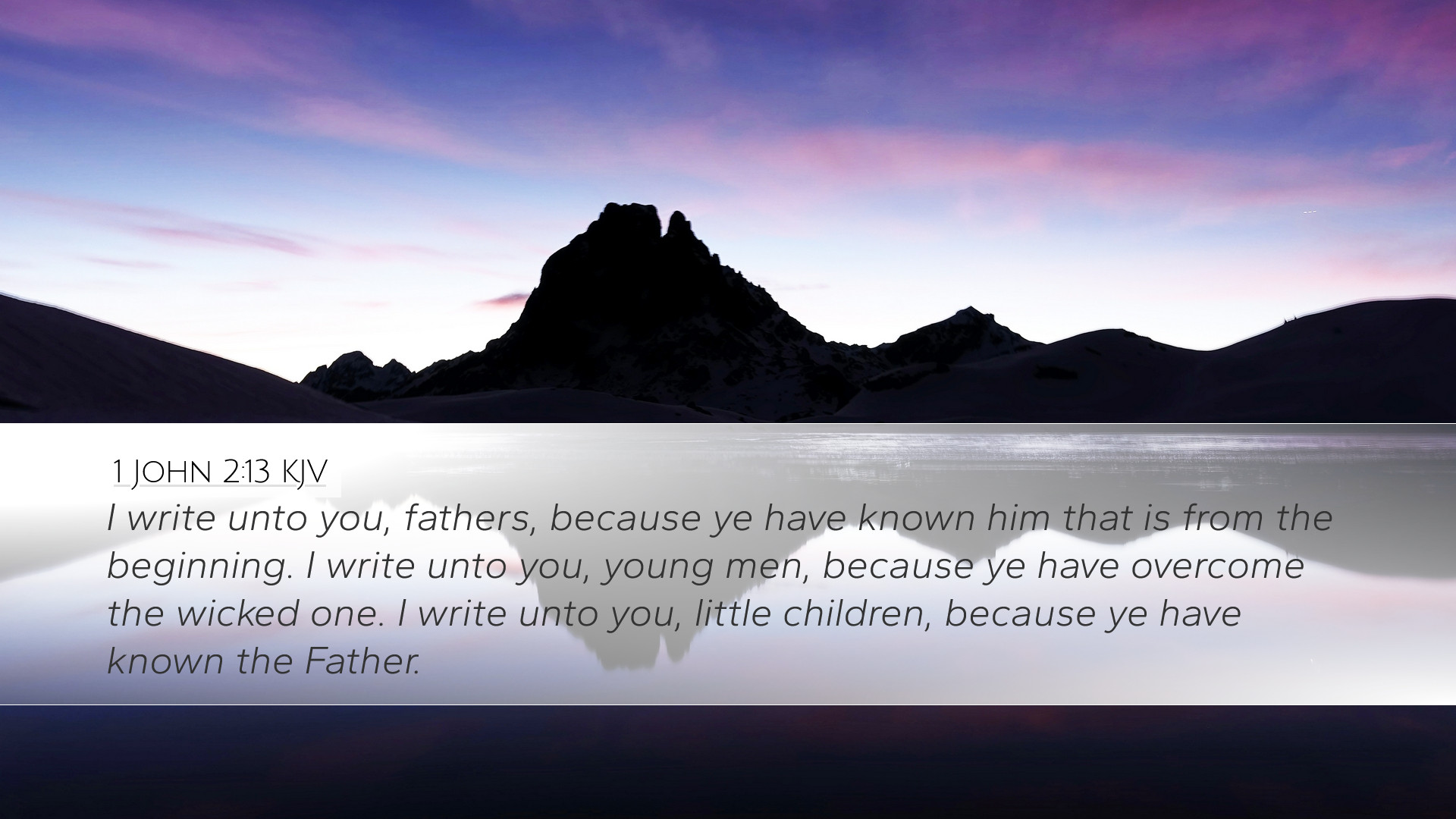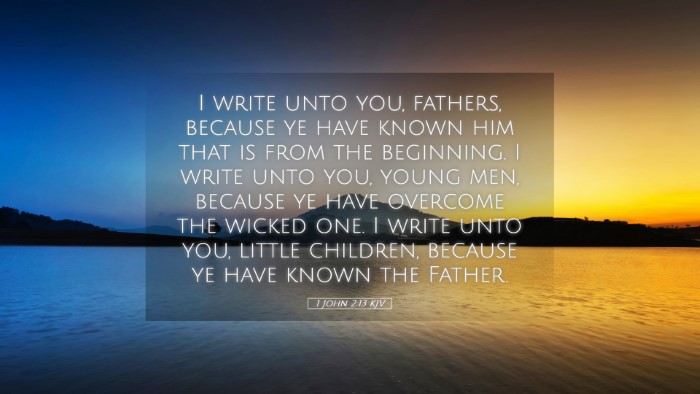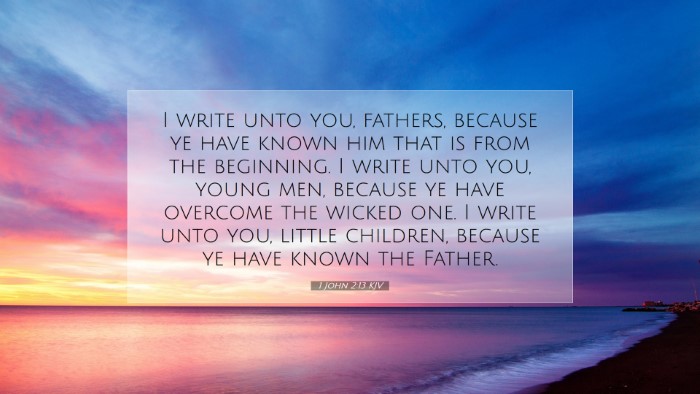Commentary on 1 John 2:13
The epistle of 1 John presents a profound exploration of Christian principles, faith, and community. In the second chapter, verse 13, we find a significant declaration that speaks to various groups within the Christian faith, specifically referring to "fathers," "young men," and "little children." The verse reads:
"I write unto you, fathers, because ye have known him that is from the beginning. I write unto you, young men, because ye have overcome the wicked one. I write unto you, little children, because ye have known the Father." (1 John 2:13, KJV)
Interpretative Summary
This verse highlights John’s recognition of different spiritual maturity levels within the church. Each group receives a unique acknowledgment and encouragement based on their relationship with God.
1. Addressing the "Fathers"
Matthew Henry notes that the term “fathers” symbolizes those seasoned in the faith, who have cultivated a deep and profound knowledge of God throughout their lifelong journey. This knowledge is not merely cognitive but is relational, reflecting an intimacy developed over time.
Similarly, Albert Barnes emphasizes that the "fathers" have come to understand the great truths of Christianity, particularly the nature of Christ as "him that is from the beginning." This acknowledgment relates to the preexistence of Christ and His divine authority, providing a firm foundation for the mature believer’s faith.
2. The "Young Men"
The "young men," as expressed by John, represent a stage of vigor and strength in their faith. Adam Clarke explains that they are marked by their spiritual battles and conquests; they have “overcome the wicked one.” Here, the reference to the "wicked one" pertains to Satan and the perils of sin, illustrating a significant victory that implies spiritual maturity through struggle.
John’s encouragement serves as a commendation for their active faith, which reflects not only knowledge but a dynamic engagement in spiritual warfare. Matthew Henry further emphasizes that this overcoming is a process, a series of victories that shape their spiritual integrity and character.
3. The "Little Children"
Finally, John addresses “little children,” a term that signifies new believers, or perhaps those at the beginning stages of spiritual development. Albert Barnes highlights that this acknowledgment is crucial for fostering growth in faith, as these are individuals who are learning to know the Father.
Adam Clarke affirms that this relationship with God is foundational, as knowing the Father is paramount to a believer’s life. It denotes both innocence and potential, before the challenges that might arise in maturity. The focus on knowing rather than mere information suggests a deeper, relational understanding of God.
Structural Significance
The structure of 1 John 2:13 illustrates a deliberate progression through stages of faith. Each designation—the fathers, young men, and little children—indicates a distinct experience within the Christian life. John’s epistle presents these roles not merely as hierarchical but as integral to a thriving spiritual community.
- Developmental Aspect: John's acknowledgment of each group stresses the importance of growth and progress in faith.
- Community Aspect: This verse serves as a reminder for mature believers to guide and nurture younger members within the church, fostering unity and collaboration.
- Spiritual Warfare: The mention of overcoming the wicked one embraces the reality of spiritual battles that believers face at different stages of their faith journey.
Theological Implications
The implications derived from this verse extend far into the theology of the church and individual believers. First, it underscores the necessity for mentoring relationships within the church, as the “fathers” are called to guide both the “young men” and “little children.” Matthew Henry articulates that the strength of one generation must bolster the next, creating a pipeline of spiritual resilience.
Furthermore, it affirms the triumph of faith over the adversities presented by evil. The “young men” serve as examples of empowerment through faith and the victories that can be achieved when they are rooted in their knowledge of God.
Lastly, the emphasis on knowing the Father challenges believers to strive for an experiential knowledge of God rather than mere intellectual assent. As portrayed by Clarke, knowing God is an ongoing journey that each believer is invited into, which aligns with the understanding of relational Christianity.
Conclusion
In summary, 1 John 2:13 invites pastors, students, theologians, and scholars to reflect upon the different stages of faith within the community, acknowledging the vital roles that each believer plays. The encouragement offered to "fathers," "young men," and "little children" provides a framework for understanding spiritual growth as an essential aspect of the Christian experience. Through these insights from public domain commentaries, one can glean not only the admonition inherent in John's writing but also practical wisdom for fostering a thriving church community grounded in the knowledge of God and one another.


